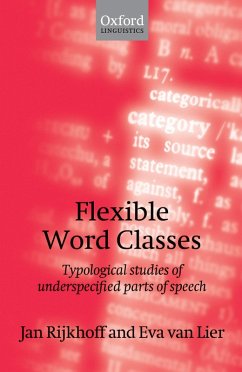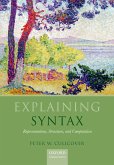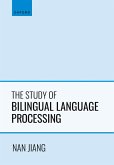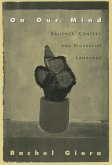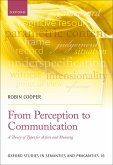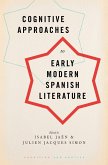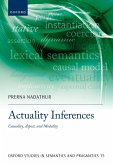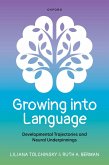This book is the first major cross-linguistic study of 'flexible words', i.e. words that cannot be classified in terms of the traditional lexical categories Verb, Noun, Adjective or Adverb. Flexible words can - without special morphosyntactic marking - serve in functions for which other languages must employ members of two or more of the four traditional, 'specialised' word classes. Thus, flexible words are underspecified for communicative functions like 'predicating' (verbal function), 'referring' (nominal function) or 'modifying' (a function typically associated with adjectives and e.g. manner adverbs). Even though linguists have been aware of flexible world classes for more than a century, the phenomenon has not played a role in the development of linguistic typology or modern grammatical theory. The current volume aims to address this gap by offering detailed studies on flexible word classes, investigating their properties and what it means for the grammar of a language to have such a word class. It includes new cross-linguistic studies of word class systems as well as original descriptive and theoretical contributions from authors with an expert knowledge of languages that have played - or should play - a role in the debate about flexible word classes, including Kharia, Riau Indonesian, Santali, Sri Lanka Malay, Lushootseed, Gooniyandi, and Late Archaic Chinese.
Dieser Download kann aus rechtlichen Gründen nur mit Rechnungsadresse in A, B, BG, CY, CZ, D, DK, EW, E, FIN, F, GR, HR, H, IRL, I, LT, L, LR, M, NL, PL, P, R, S, SLO, SK ausgeliefert werden.

